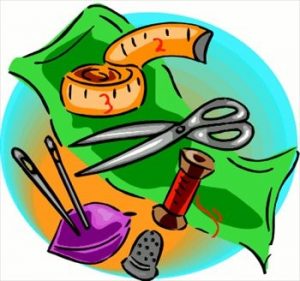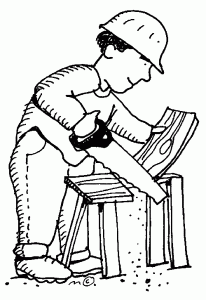Design and Technology

What does the subject ‘intend’ to provide the children at PTM?
Pear Tree Mead is a place where we empower and inspire children to be creative and practical, developing creative skills confidently using a growth mindset. Like it states in the National Curriculum ‘Design and technology is an inspiring, rigorous and practical subject. Using creativity and imagination, pupils design and make products that solve real and relevant problems within a variety of contexts, considering their own and others’ needs, wants and values.’ We would like to equip and embed skills that children will experiment with and develop over their journey with us.
In their DT sessions, the children will develop their technical DT skills. Each year they will have the opportunity to complete a DT project and will be involved in designing, making and evaluating their own products. They will also participate in cooking and nutrition learning/skill sessions.
Through our teaching of DT we aim to:
- Teach DT skills and techniques as outlined in our curriculum. Revisit, develop and master these as the children progress across the school.
- Teach the children the whole DT process; design, creation and evaluation of a variety of products. Develop their understanding and their practical skills of this as they move across key stages.
- Each year children will learn about cooking and nutrition and will be given opportunities to participate in practical sessions.
- Encourage creative thinking, innovative ideas and develop the pupils imaginative and critical thinking skills.
- Develop the children’s ability to problem solve, encourage pupils to take risks and be resourceful.
- Encourage children to work collaboratively as individuals and as part of a team.
- Promote pupil’s enjoyment, sense of accomplishment and purpose in designing and making things, this will result in building their confidence.
- Provide engaging opportunities (e.g. clubs and workshops)
- Promote parental involvement in a variety of ways (e.g. classes may incorporate DT into homework, may invite parents in to complete creations with children and may provide opportunities for children to share and discuss projects with parents.)
- Teach and follow safe procedures.
- Incorporate Pear Tree Mead’s school branch values across DT sessions.

How is DT taught across KS1 and KS2?
Design and Technology is taught mostly through our experience or science topics. We try to teach as cross curricular as possible so Design and Technology may be taught alongside other subjects. During each year at Pear Tree Mead the children are involved in a DT project, they design, make and evaluate their own products. These are then displayed for all to see. They also have additional cooking and nutrition and DT skills sessions. We enable the children to experience all aspects of design and technology, for example they are involved in building structures, products with mechanisms, the construction of electrical and mechanical products, textiles, cooking and nutrition.
The attached curriculum below shows the progression of skills and learning across Ks1 and KS2 DT curriculum objectives 2019

How is DT taught in the EYFS
In the Early Years, design and technology is taught through ‘Expressive Art and Design’. Lots of other areas are also developed well during DT learning, for example their understanding of the world, physical development, personal, social and emotional development and their communication and language. Through these sections of the early year’s curriculum, we cover the basics of the design and technology curriculum. The children participate in the creation of projects linking to their topics with the support of adults; they also have daily opportunities to do child-initiated creations. Lots of creativity and independence is encouraged in early years DT. Both the nursery and reception classrooms have various creative / construction areas which can be continuously accessed by the children, these are inside and outside the classroom.
What additional learning opportunities are given to the children across school
To enrich the subject in school, we have special days / festivals to promote the creation of DT products, the children are involved in engaging days (e.g. Christmas creative day) which also involves peer learning where different classes work together and/or share creations. Also, parents are sometimes invited into classrooms to create together or to look at and celebrate products, this happens on various occasions across the year.
How can parents assist with this subject?
Ideas of how you can help your child develop their DT learning and skills:
- Work together to make projects at home. This could be with a variety of materials of could simply be during play. Design and make products together.
- Try cooking together or creating a dish together. You could make savoury or sweet dishes e.g. sandwiches, soups, deserts, cakes et.c. You could also link to their learning about the world and try creating dishes from around the world.
- Encourage creativity whenever you child is making something. Follow their interests and see what their imagination creates.
- Remind your child about health and safety measures when participating in DT e.g. when you cook, or if you construct something together.
- Encourage your child to evaluate their creations. Talk together about what is great about their products and what could they do to make them even better.
These websites may provide useful ideas for you and your child.
- https://www.bbc.co.uk/bitesize/subjects/zb9d7ty
- https://www.bbcgoodfood.com/recipes/collection/kids-cooking
google – creative ideas or making puppets!
Inclusion for all
Lessons and activities are planned to include all children by using a range of approaches. This includes use of open ended tasks with potential for a variety of results, using various levels of challenge and provisions of different resources and equipment, questioning, use of equipment, and grouping (either mixed or ability set) to enable children adult or peer support. Lessons are planned to facilitate the best possible outcome for all children within the class. We also providing additional opportunities for those with gifts or talents.
